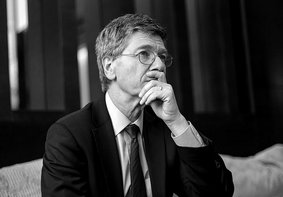European Russophobia and Europe’s Rejection of Peace: A Two-Century Failure
Europe has repeatedly rejected peace with Russia at moments when a negotiated settlement was available, and those rejections have proven profoundly self-defeating. Read more

Jeffrey Sachs, a professor at Columbia University, in an interview for a Serbian weekly magazine NIN evaluates the monetary policies of the EU, discusses the future of the Eurozone, analyzes what is the share of responsibility of the neoliberal approach to financial markets in the outbreak of the 2008 global economic crisis, and assesses the possibility of the return of greater state regulatory activity. “Although the vast majority of countries have undertaken certain measures, the overall scope of reforms remains relatively small given the enhanced political power held by the banks. I would not say that there was a fundamental change of the system. Also, the states have not exerted too much pressure on the banks, due to their willingness to again become creditors. There has not been a required level of regulation of the banks, and I think that it is necessary in order to continue further.“
Professor Sachs also discussed Serbia’s monetary policy, whether the country should join the Eurozone, how export orientation would affect the national economy and what steps need to be taken in order to achieve growth. “The majority of development sectors requires state investments, infrastructure, trained workers, export markets and continued diplomatic effort to ensure an inflow of investments. None of that can be left to relying solely on the market. Instead, it requires a serious national strategy that should not just be reduced to being part of the country’s EU integration process“. He noted that “a number of budget cuts and rule alterations could play an important role, but they remain insufficient in terms of solving the problems of economic stagnation.“
Professor Jeffrey Sachs is a member of the CIRSD Board of Advisors.
The interview was originally published in Serbian and can be accessed here